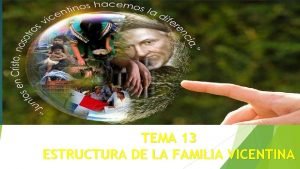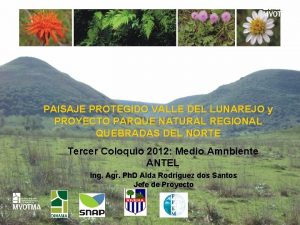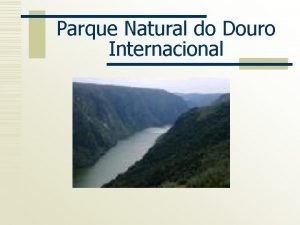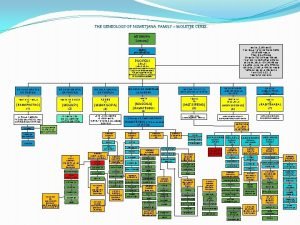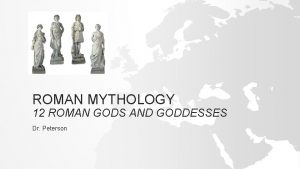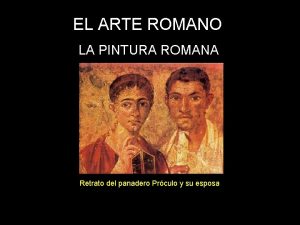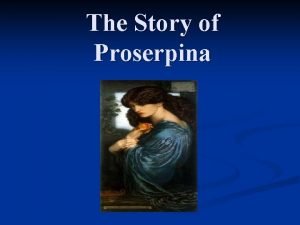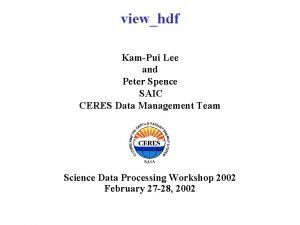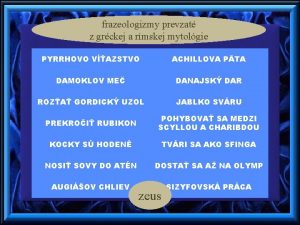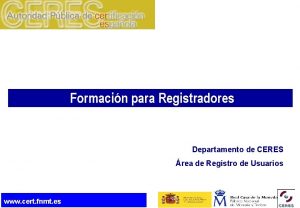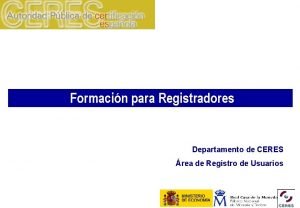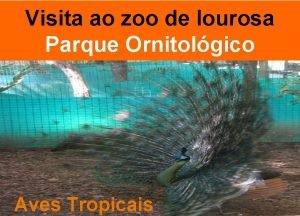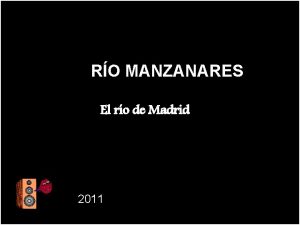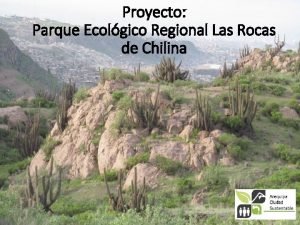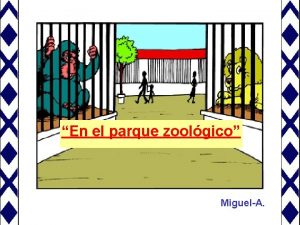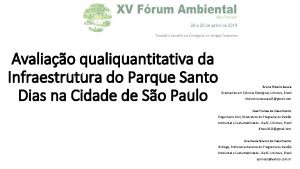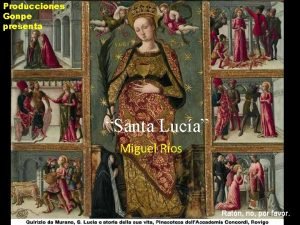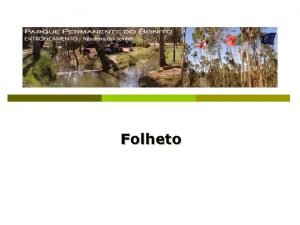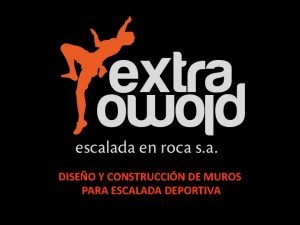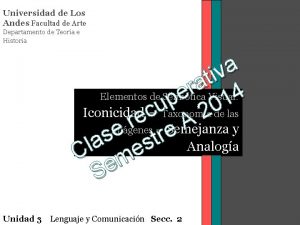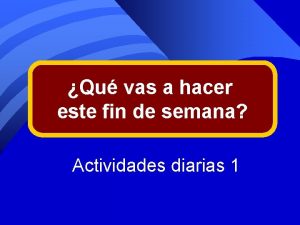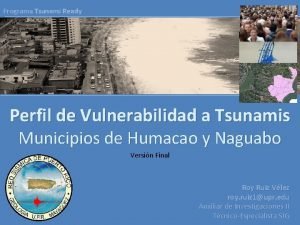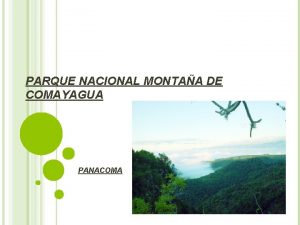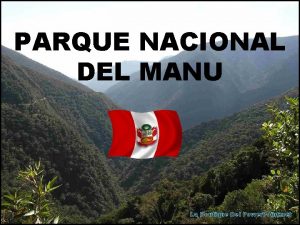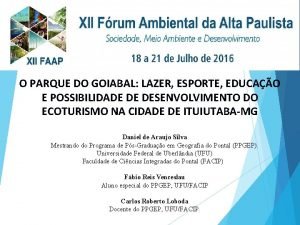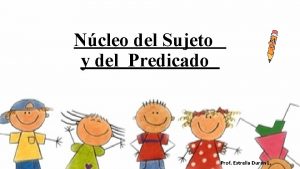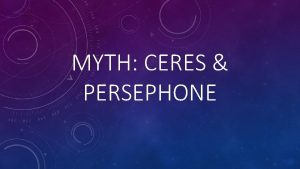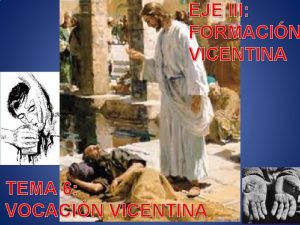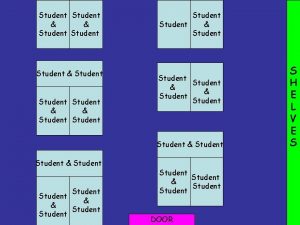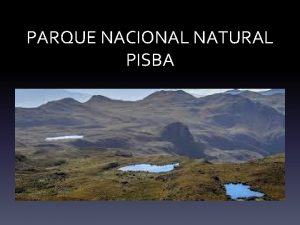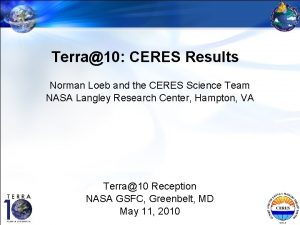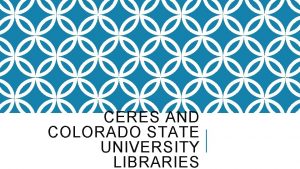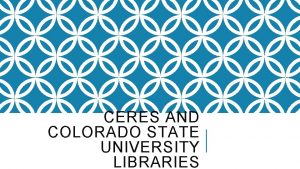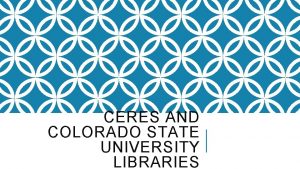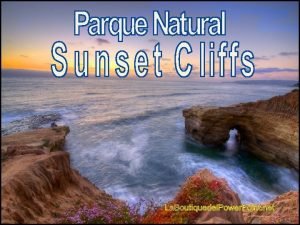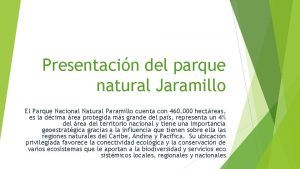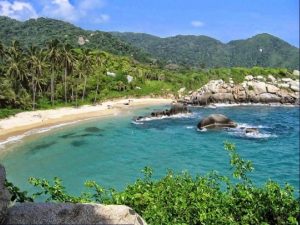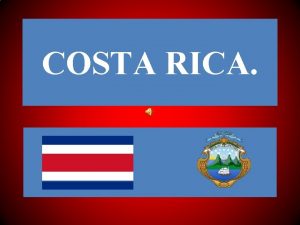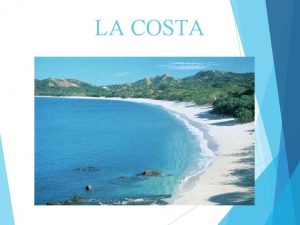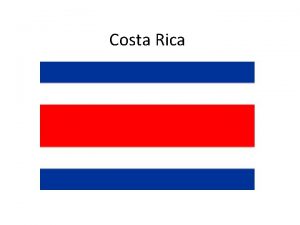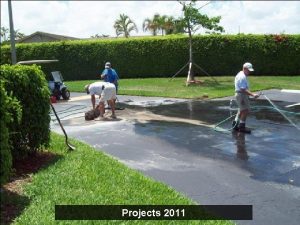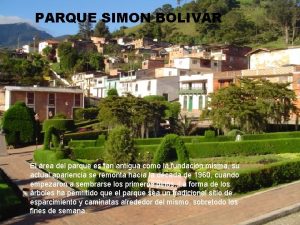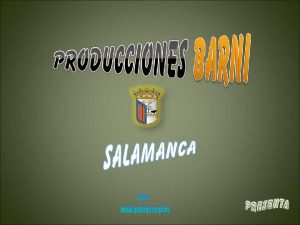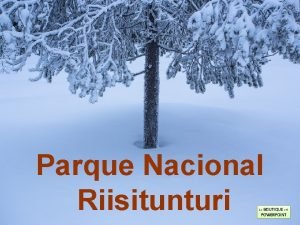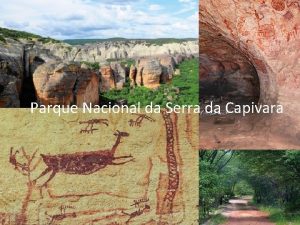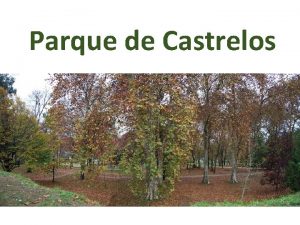PARQUE NATURAL COSTA VICENTINA STUDENT PROJECTS CERES International


































- Slides: 34

‘PARQUE NATURAL COSTA VICENTINA: STUDENT PROJECTS’ CERES International Project Vale de Amoreira Aljezur, southwest Portugal Centre for Education, Recreation and Environmental Sustainability

Structure of the presentation o Introduction o Key areas for student projects o Student Project Week format

Parque Natural do Sudoeste Alentejano e Costa Vicentina (PNSACV) o Portugal’s largest protected coastal zone (IUCN category V) o Part of the Nature 2000 network and IBA (Important Bird Area) o Includes a 130 km long and 2 km wide Marine Protected Area o One of the richest regions of Europe in terms of aquatic and terrestrial animal and plant biodiversity

PNSACV Algarve, Portugal

Importance of research for conservation management in the PNSACV The management plan for the Parque Natural is a compromise of sometimes conflicting interests: Biodiversity conservation vs. o Agriculture and aquaculture intensification o Touristic developments o Resource exploitation (mining, fishing) Information about local biodiversity hotspots and conservation priorities informed by global agendas is imperative for effective management.

Importance of research for conservation management in the PNSACV "Would you tell me, please, which way I ought to go from here? “ "That depends a good deal on where you want to get to, said the Cat. "I don’t much care where--" said Alice. "Then it doesn’t matter which way you go, " said the Cat. (Alice in Wonderland, Lewis Carroll)

Importance of research for conservation management in the PNSACV o Information gathered by multidisciplinary research is crucial for authorities to make informed, science based decisions to conserve biodiversity. o Very little research has been carried out in the PNSACV. o Information gathered by student projects can make a significant difference to protect the natural beauty of the Parque Natural in the long term.

Key areas for student projects: o Biology: marine, freshwater, terrestrial o Earth Sciences: geology, geography o Outdoor recreation: watersports, adventure sports

Biology Projects: Rocky shore ecology

Biology Projects: Estuaries

Biology Projects: Cetacean conservation

Biology Projects: Fisheries and aquaculture

Biology Projects: Pollution

Biology Projects: Ephemeral systems

Biology Projects: Streams and reservoirs

Biology Projects: Garigue and macchia

Biology Projects: Invasive species

Geology Projects: Tectonics

Geology Projects: Carbonates

Geology Projects: Sedimentology

Geology Projects: Palaeontology

Geology Projects: Hazards rock falls landslides coastal cliff retreat

Geography Projects tourism agriculture rural change water management

Outdoor Sports Projects: Water sports diving surfing kayaking coasteering kite-, windsurfing

Outdoor Sports Projects: Biking

Outdoor Sports Projects: Rock climbing

Project Weeks / Science Camps Project Weeks and Science Camps are organised by CERES International, a not-for-profit organisation committed to field-based education, environmental research and low impact outdoor recreation. CERES works together with local researchers on specific projects: Universidade do Algarve Universidade de Lisboa Universidade de Évora AIMM Mare Ilimitado

Project Weeks / Science Camps Annually three Project Weeks offer students the opportunity to complete a module assignment or an individual project while contributing to science and conservation research. 7 – 14 days Science Camps running for several weeks enable students to synergise a scientific contribution worthy of a degree with contributing to applied conservation outcomes and forging important contacts. Interested students please contact CERES for details. up to 12 weeks

Student Project Weeks: indicative itinerary First day: o Pick up from Faro airport, transport to CERES lodge, Aljezur o Introduction to the project and the area, presentation of staff and team members, detailed information about safety measures o Exploratory tour to gain an overview of study sites o Dinner o Round table presentation of projects topics with CERES staff

Student Project Weeks: indicative itinerary Day two - six: o Breakfast o Presentation of individual project progress: group feedback o Transport to study site o Field work o Transport to CERES Lodge (optional drive to town for shopping) o Project work /data analysis (support from CERES staff) o Dinner

Student Project Weeks: indicative itinerary Final day: o Breakfast o Summary session, debriefing o Transport to Faro airport

Student Project Weeks A cost contribution of € 199/ person and week includes: o Airport transfer, all local transport to study site and town o 7 nights accommodation in the CERES Lodge (5 dormitory rooms, self-catering facilities, Wi. Fi etc. ) o Individual support regarding site selection, experimental design, and data analysis from CERES staff (after consultation with university project supervisor!) o Emergency support and first aid equipment o Access to basic field equipment …limited to 18 students / project week

Student Project Weeks Application process: o Thoroughly discuss a project idea with your supervisor o Contact CERES via email with a project proposal o CERES accepts a maximum 18 project student for each week o Selection criteria are the potential benefit of the proposed project for the PNSACV, recommendation from your project supervisor and the feasibility of the practical execution within the time frame Dates: Autumn half term, Christmas/spring break, Easter break

‘…. see you in Aljezur’ CERES International Vale de Amoreira, Aljezur www. ceresinternational. org axel@ceresinternational. org all pictures in this presentation © CERES International. For copies please contact axel@ceresinternational. org
 Sátira vicentina
Sátira vicentina Ramas de la familia vicentina
Ramas de la familia vicentina Parque natural regional valle del lunarejo
Parque natural regional valle del lunarejo Pndi
Pndi Moletjie history
Moletjie history Pluto greek name
Pluto greek name Estilos pintura romana
Estilos pintura romana Ceres name meaning
Ceres name meaning Ndsu counseling center
Ndsu counseling center Ceres gezegeni
Ceres gezegeni Kampui
Kampui Ceres bohyňa
Ceres bohyňa Departamento ceres
Departamento ceres Departamento ceres
Departamento ceres Grade 7 ns term 3
Grade 7 ns term 3 Zonta international projects
Zonta international projects Parque ornitológico de lourosa
Parque ornitológico de lourosa Parque de la polla colmenar viejo
Parque de la polla colmenar viejo Parque de las rocas
Parque de las rocas Sabendo que o comprimento do muro parque zoobotânico
Sabendo que o comprimento do muro parque zoobotânico Jugar yo form
Jugar yo form Parque recreativo el zoologico acolman
Parque recreativo el zoologico acolman Parque santo dias
Parque santo dias Gaudi parque guell
Gaudi parque guell Dame una cita vamos al parque
Dame una cita vamos al parque Parque do bonito entroncamento cne
Parque do bonito entroncamento cne Nikos parque interlomas
Nikos parque interlomas Parque infantil
Parque infantil Que vas a hacer este fin de semana
Que vas a hacer este fin de semana Ejemplos de vulnerabilidad
Ejemplos de vulnerabilidad Parque nacional montaña de comayagua
Parque nacional montaña de comayagua Parque nacional del manu ppt
Parque nacional del manu ppt Parque do goiabal
Parque do goiabal Cuál es el núcleo del predicado en la oración
Cuál es el núcleo del predicado en la oración Parque telefunken
Parque telefunken

